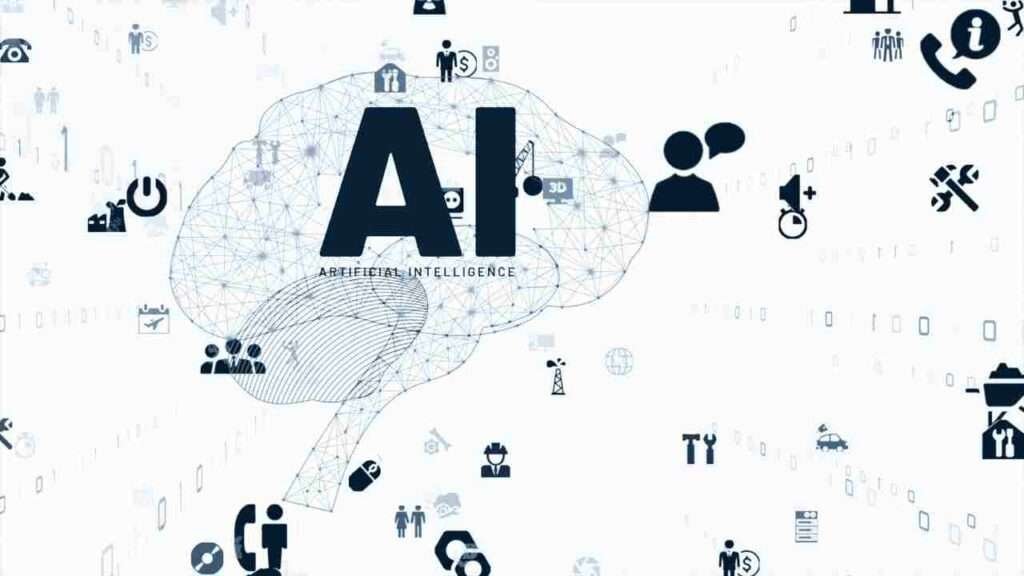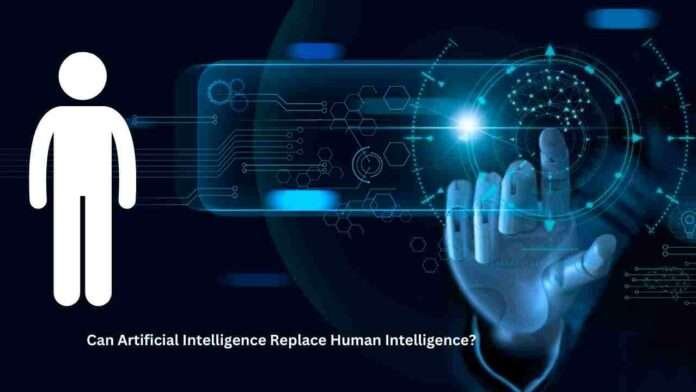Introduction
Artificial Intelligence (AI) has made incredible advancements in recent years, driving innovations in industries such as healthcare, finance, and education. But one of the most pressing questions remains: Can AI replace human intelligence? While AI systems are becoming more sophisticated, this blog explores the potential and limitations of AI and whether it can ever fully substitute human intellect.
Thank you for reading this post, don't forget to subscribe!Understanding Human Intelligence vs. Artificial Intelligence

What is Human Intelligence?
Human intelligence refers to our innate ability to learn, understand, and apply knowledge through critical thinking, problem-solving, creativity, and emotional understanding.
What is Artificial Intelligence?
AI refers to the development of computer systems that can perform tasks typically requiring human intelligence. This includes visual perception, speech recognition, decision-making, and language translation.
Comparing AI and Human Intelligence
1. Emotional Intelligence
Humans possess empathy, intuition, and emotional intelligence that AI lacks. Although AI can analyze patterns in human emotions through data, it does not “feel” emotions or understand context the way humans do.
2. Creativity and Innovation
Human creativity is often spontaneous and abstract. AI, on the other hand, generates ideas based on predefined patterns or datasets, which limits its ability to think “outside the box.”
3. Learning and Adaptation
While AI learns through data and algorithms, humans can learn from experience, introspection, and adaptation. This type of learning allows humans to tackle complex, unpredictable situations, which AI struggles with.
4. Ethical Decision Making
Humans can apply moral reasoning, cultural sensitivity, and personal values when making decisions, while AI follows programmed algorithms without a sense of right or wrong.
The Role of AI in Complementing Human Intelligence
AI can greatly augment human intelligence rather than replace it. By handling repetitive tasks and analyzing large datasets, AI allows humans to focus on creative and strategic thinking. In industries like healthcare, AI assists doctors by offering data-driven insights, yet human judgment remains essential in making final decisions.
Limitations of AI
Despite its capabilities, AI faces significant limitations:
- Lack of Common Sense: AI lacks the general understanding of everyday situations that humans take for granted.
- Dependence on Data: AI systems are only as good as the data they’re trained on, while humans can generate knowledge even from incomplete information.
- No Self-awareness: Unlike humans, AI does not possess consciousness or the ability to reflect on its actions.
Can AI Fully Replace Human Intelligence?
While AI is excellent for automating specific tasks and improving efficiency, it cannot replicate the nuanced decision-making, creativity, and emotional depth that define human intelligence. Instead of replacing humans, AI is a tool that complements human capabilities by enhancing productivity and providing support in various sectors.
FAQs
Can AI think like humans?
No, AI cannot “think” like humans. It processes data and patterns but lacks consciousness, self-awareness, and emotional intelligence, which are fundamental aspects of human thought.
Will AI take over human jobs?
AI will likely replace some jobs that involve repetitive tasks. However, it is also creating new opportunities by assisting in complex decision-making and allowing humans to focus on more creative and strategic roles.
What tasks can AI do better than humans?
AI excels in processing large amounts of data quickly, performing repetitive tasks without fatigue, and making precise calculations. In these areas, AI often outperforms human capabilities.
What are the dangers of AI?
Potential dangers of AI include job displacement, privacy concerns, and biases in AI algorithms. AI’s lack of ethical judgment also presents risks in sectors like healthcare and law enforcement.
Can AI surpass human intelligence?
AI might surpass human intelligence in specific areas, such as computational speed or data analysis. However, replicating the full range of human intelligence, particularly emotional and ethical reasoning, remains unlikely in the foreseeable future.
Conclusion
Artificial Intelligence is a powerful tool that enhances human capabilities but cannot replace the depth and versatility of human intelligence. The future will likely see AI and human intelligence working together to drive innovation and improve life across various sectors.
Read More – Which AI Can Generate Images? A Guide to AI Image Generators



